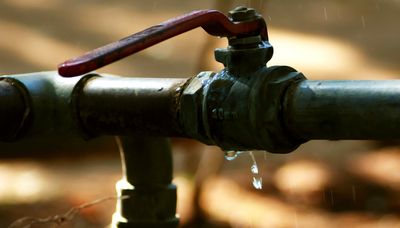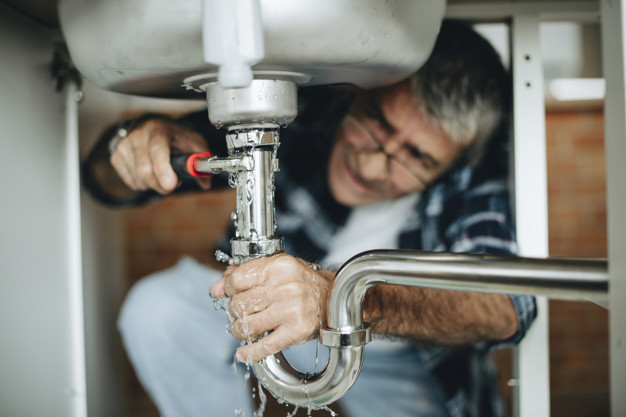Right here below you'll find some great data on the subject of How to Find and Prevent Water Leaks in Your Home.

"Be careful of little expenses. A tiny leakage will sink a great ship." - Benjamin Franklin.
He could not have been a lot more appropriate since water leakages in our houses lead to a waste of resources, boosting our water costs. This increase may appear negligible at initially, it can lead to significant costs that can damage your bank. Other than a boost in expenses, water leakages also trigger undesirable organic development, architectural damage, as well as also electrical dangers.
Identifying if you have a water leak isn't constantly very easy due to being unable to see most of the pipework in your house. If you have had a rise in your water bills lately, discovered water stains on ceilings and also wall surfaces, smelt lousy odor, etc. You may intend to take into consideration asking for plumbing solutions to get it looked into.
There are numerous reasons for water leaks, as well as we have actually compiled the typical reasons below. Check to see if you have actually had related issues in your home recently.
Clogged drains
Food particles, dust, and also grease can create blocked drains pipes as well as block the flow of water in and out of your sink. If undealt with, raised pressure within the gutters can cause an overflow and end up fracturing or breaking pipelines. To stay clear of stopped up drains in your house, we encourage you to avoid pouring particles away and also routine cleaning of sinks.
High water pressure
You saw your residence water stress is more than typical but after that, why should you care? It runs out your control.
It would be best if you cared since your typical water pressure need to be 60 Psi (per square inch) and also although your house's plumbing system is designed to withstand 80 Psi. A boost in water pressure can place a stress on your home pipelines as well as result in splits, or even worse, burst pipelines. Obtain in touch with a specialist about controling it if you ever discover that your house water stress is higher than normal.
Corrosion
As your pipework grows older, it gets weak and a lot more susceptible to corrosion after the regular passage of water with them, which can gnaw at pipes and also cause cracks. A visible indication of corrosion in your house plumbing system is staining as well as although this could be tough to find due to many pipelines hidden away. Once they are old to make certain an audio plumbing system, we advise doing a regular check-up every few years as well as transform pipes
Compromised pipeline joints
Pipe joints are the parts of our plumbing system where the pipelines attach. They are the weakest point of our plumbing system. Because of this, they are extra vulnerable to damage. It is vital to note that although pipelines are made to withstand pressure as well as last for some time, they weren't created to last for life; consequently, they would certainly deteriorate over time. This deterioration could result in cracks in plumbing systems. A typical indication of damaged pipeline joints is too much noise from faucets.
Busted seals
An additional source of water leaks in houses is broken seals of residence devices that use water, e.g., a dishwasher. When such appliances are mounted, seals are mounted around water ports for simple passage of water through the machine. A broken seal can create leak of water when in use.
With little or no understanding of plumbing, comprehending your residence's plumbing system enough to repair some of these concerns (without repercussion) can be a headache. Contact plumbing experts in Pittsburgh, Divine Superintendence, Rochester, as well as environ today, and they'll make those issues go away.
He couldn't have actually been more appropriate due to the fact that water leakages in our homes result in a waste of sources, boosting our water bills. If you have had a rise in your water costs recently, discovered water stains on ceilings and also wall surfaces, smelt poor odor, and so on. A rise in water stress can put a pressure on your house pipes as well as lead to fractures, or worse, burst pipes. One more reason of water leakages in residences is broken seals of home devices that use water, e.g., a dish washer. When such devices are installed, seals are installed around water ports for simple passage of water with the equipment.
5 TIPS IN DETECTING A WATER LEAK IN YOUR HOUSE
Water leaks can be hard to find in your home, yet they can be so common. We rely on water every day in our home, which is why a leak can cause big problems. By detecting them early, you can save money and further damage, getting the problem fixed as soon as possible. Here are 5 tips to help you detect a water leak in your home, so you can contact a plumber straight away and get the issue sorted.
Check your water meter
Many people underestimate the value of the water meter in their home. It can be one of the best ways to tell if you have a leak early on, so you can get on top of it before issues start arising. Start by turning off all the water in your home: taps, washing machine, dishwasher, etc. Now take a look at the meter – if it’s still changing with everything turned off, it’s likely you have a fast-flowing leak that you need to get on top of straight away. If nothing changes, then leave your meter for an hour or two and come back to it. Did it change in this time? It’s likely you have a slower leak, which isn’t as urgent but still handy to get fixed so it doesn’t become a bigger problem.
Keep an eye on your bill
Another good way to detect a leak in your home is by keeping an eye on your water bill. It helps if you have a past bill from the same period of time. You can compare like for like and determine whether your water usage has increased significantly. If it has, there may be a leak in your system that you haven’t picked up before. A professional plumber can check through all of your pipes and determine where it is coming from.
Look for damage
If you have a leak inside your home, you will notice damage over time. Take a look at your showers and bathtubs and note whether any of the tiles surrounding the area seem to be discoloured or damaged in any way. There may be water stains, mould or peeling material that has resulted from a build up of moisture over time. Make sure you take a look under sinks at the back of cupboards that don’t get accessed regularly. This is where damage can go unnoticed and build up over periods of time.

As a serious person who reads on How to Find and Prevent Water Leaks in Your Home, I think sharing that excerpt was smart. For those who enjoyed reading our post plz make sure you remember to share it. Thanks a lot for your time. Please check up our website back soon.
Need help? Dial now.